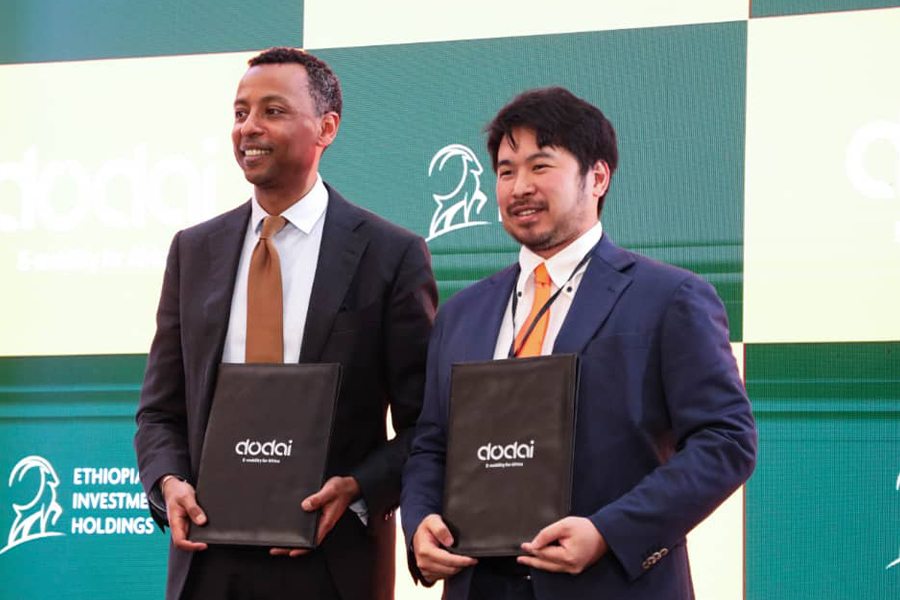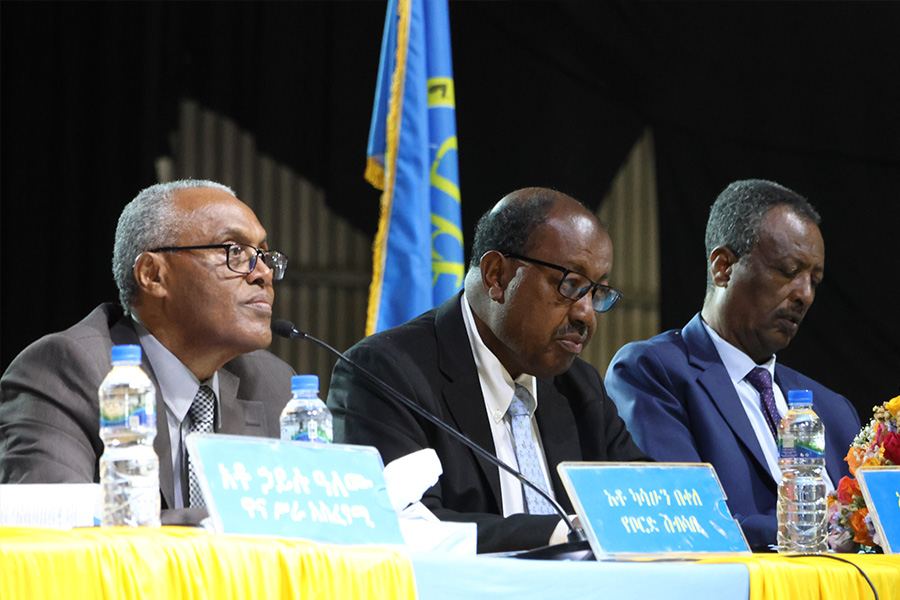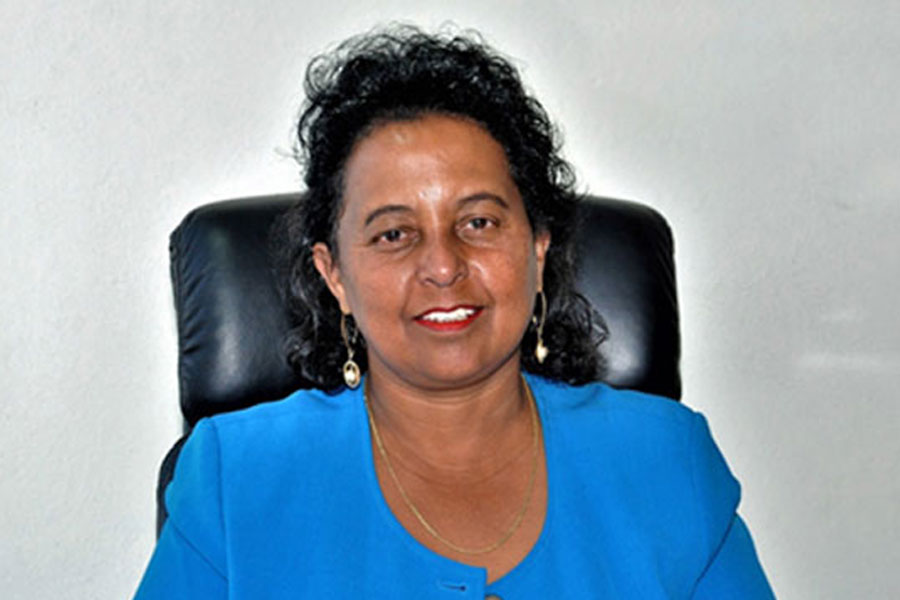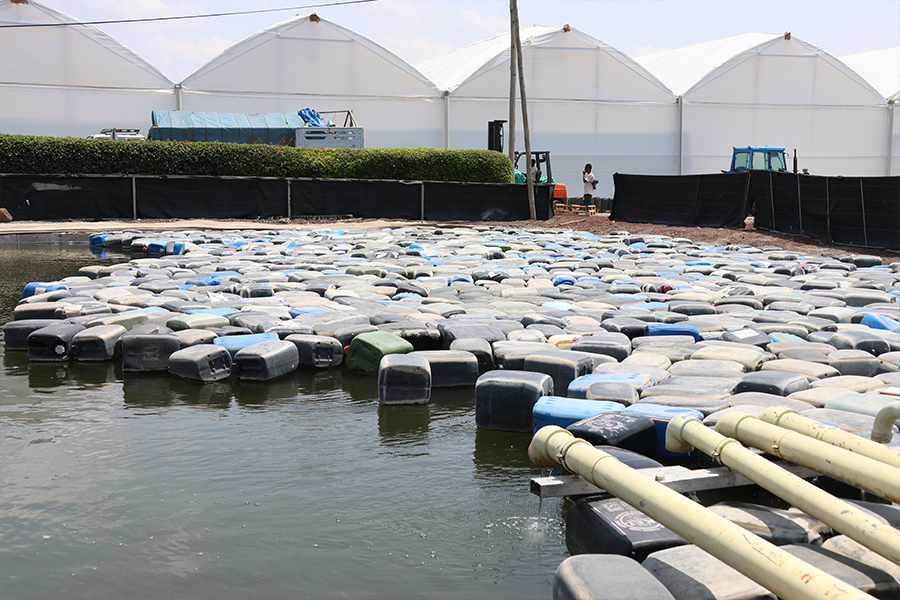
Radar | Nov 24,2024
Ethiopia's decades-old energy policy is evolving rapidly, opening doors for private sector involvement in renewable energy and clean technology. Spearheaded by the Ministry of Water & Energy, the policy targets two vital goals of meeting the growing energy demand with renewables and unlocking investment and exports.
By diversifying energy sources like solar, wind, and geothermal, the Ministry's officials aspire to increase energy production by 30pc annually and meet the rising demand for clean power. They believe their newly designed policy aligns with the country's "Green Economy" strategy to reduce its carbon footprint. The draft policy also seeks to attract foreign investments by creating opportunities for hydrogen and ammonia exports and generating foreign currency.
"It goes in line with recent transport initiatives," said Mesfin Dabi, the Ministry's lead executive of electrification and energy information.
He called for the private sector to contribute to achieving the objectives outlined in the draft, particularly in expanding the infrastructure for electric vehicles, including charging stations and power sources.
Minister of Transport & Logistics, Alemu Sime (PhD), recently enforced a ban on imports of gas-powered automobiles for personal use. However, the policy has raised concerns about Ethiopia's current electricity infrastructure capacity to handle an increase in electric vehicles. Alemu's vision for green transport extends beyond electric cars, embracing a five-year strategic plan his Ministry designed with the support of the United Nations to promote non-motorised mobility in urban centres.
Alemu said in an interview released last week that he is keen to see a culture of walking, cycling, and the use of horse-drawn carriages within cities. According to him, the policy reduces vehicle dependence, improves air quality, and creates a more pedestrian-friendly urban environment.
Mesfin observed that progress proved to be slow. He sees a recent agreement between a Dubai-based company and officials of the Ministry of Finance as a positive step but pointed to the lack of an enabling policy as the primary stumbling bloc holding back multinational companies from investing. The recent success of Australian firm Fortescue Future Industries in extracting hydrogen from the Omo and Awash river basins demonstrated the country's potential.
"There is a lot of untapped potential," said Mesfin.
It has been five years since the Parliament ratified a bill to increase energy production through Public-Private Partnership (PPP) arrangements. While a few companies have embarked on large-scale projects since then, notable progress was marked in December when the United Arab Emirates-based company, AMEA Power, signed a deal with the Ministry of Finance to construct a 300MW wind farm, representing one of the most significant private sector entries into the energy landscape.
Energy experts have long called for a revision of the policy, arguing the existing policy is struggling to meet growing demand and relies heavily on inefficient practices.
Yemaneberhan Kiros, founder of Yomener Energy Auditing & Engineering PLC, echoed these concerns. He observed that a rapid shift to electric vehicles would be incompatible with the current infrastructure limitations.
Research revealed that nearly 50pc of factory energy is wasted due to lax follow-up on past energy-saving initiatives. Yemaneberhan believes improving efficiency through regulatory overhauls can significantly reduce the strain on the power grid. Increasing tariffs to incentivise investment from large energy companies, implementing regulatory reforms to boost efficiency, and establishing legal frameworks to unlock Ethiopia's vast energy potential are some of the ideas experts urge the authorities to consider.
"Energy efficiency matches a new hydroelectric dam," Yemaneberhan told Fortune.
A recent policy change by the central bank, allowing foreign currency repatriation, offshore accounts, and profit convertibility in large-scale projects, has removed a bottleneck for foreign companies seeking to invest in the energy sector. Ethiopia boasts immense potential for renewable energy generation, with around 5,200MW of energy available, but limitations remain—existing infrastructure struggles to meet existing demand, particularly in rural areas.
Clean energy deficits are particularly acute for household cooking, with less than 10pc of the population having access. A significant segment still relies on coal and other highly polluting sources for their energy needs. The Ethiopian Clean Cooking Alliance, established five years ago, has struggled to onboard only two tier-III companies since its inception. It reflects a national shortage of efficient energy options for households.
Dawit Tibebu, head of the 85-member Association, hopes the federal government will play a critical role in incentivising private sector investments in the development of clean cooking options. He blames the government's lack of attention to progress in this area.
Despite the persistent energy shortage, Ethiopia has earned 47.5 million dollars through electric exports to neighbouring countries Kenya, Sudan, and Djibouti. The state-owned Ethiopian Electric Power, has ambitious plans to expand its reach farther to the southern corners of the continent.
The latest policy document attempts to address regulatory overlaps and improper mandates between different agencies.
The state-owned utility monopoly, the Ethiopian Electric Utility (EEU), purchases bulk power and distributes it. It was formed 13 years ago following the dissolution of the Ethiopian Electric Light & Power. Last year, it distributed electricity to 4.6 million households across the country.
Melaku Taye, the communications director, identified gaps in prioritising distribution lines as a major impediment to achieving universal electric access. Concentrated energy demand in rapidly expanding urban centres has resulted in power outages, exacerbated by the lack of targeted investments contributing to the grid's poor reliability.
"Several complex components are at play," Melaku told Fortune.
EEU has launched massive renovation works, including installing 674 km of transmission lines, three switching stations, and 2,000 transformers, financed by the World Bank.
Despite these initiatives, legislative progress has been slow in allowing companies to sell their excess energy from renewable sources. While private sector involvement has been urged over the past five years, regulatory hurdles continue to impede progress in this area.
According to Dereje Walelign, the general manager of Lydetco Plc, the prevalence of laws pulled the development of diversified energy sources. He argued that a 15pc tax imposed on solar home appliances undermined access to power for energy-deprived households.
"Urbanites pay less for electricity than their rural counterparts," Dereje observed.
His company, specialising in off-grid solar power and offering clean energy solutions, has pioneered an energy system solely reliant on solar power. The company's headquarters in Lemi Kura District, near Hill Bottom Restaurant, is the first to get powered off-grid, sourcing energy from sunlight. The project demonstrated the potential of renewable energy, with the building fitted with 108 solar panels, costing 2.5 million Br to design and install. The system generates sufficient power to meet the needs of a couple of dozen households at its peak – five times more than the building consumes.
Dereje looks forward to a future where solar-powered charging stations, like the ones his company plans to build, will be permitted to sell energy to the public.
"I hope the policy shifts address the demands effectively," he told Fortune.
PUBLISHED ON
[ VOL
, NO
]

Radar | Nov 24,2024

Radar | Oct 27,2024

Fortune News | Aug 18,2024

Radar | Dec 15,2024

Delicate Number | Jun 07,2025

Viewpoints | Apr 03,2021

Radar | Jan 19,2024

Fortune News | Apr 15,2023

Radar | Aug 13,2022

In-Picture | Jun 22,2024

Dec 22 , 2024 . By TIZITA SHEWAFERAW
Charged with transforming colossal state-owned enterprises into modern and competitiv...

Aug 18 , 2024 . By AKSAH ITALO
Although predictable Yonas Zerihun's job in the ride-hailing service is not immune to...

Jul 28 , 2024 . By TIZITA SHEWAFERAW
Unhabitual, perhaps too many, Samuel Gebreyohannes, 38, used to occasionally enjoy a couple of beers at breakfast. However, he recently swit...

Jul 13 , 2024 . By AKSAH ITALO
Investors who rely on tractors, trucks, and field vehicles for commuting, transporting commodities, and f...

Jul 5 , 2025
Six years ago, Ethiopia was the darling of international liberal commentators. A year...

Jun 28 , 2025
Meseret Damtie, the assertive auditor general, has never been shy about naming names...

Jun 21 , 2025
A well-worn adage says, “Budget is not destiny, but it is direction.” Examining t...

Jun 14 , 2025
Yet again, the Horn of Africa is bracing for trouble. A region already frayed by wars...